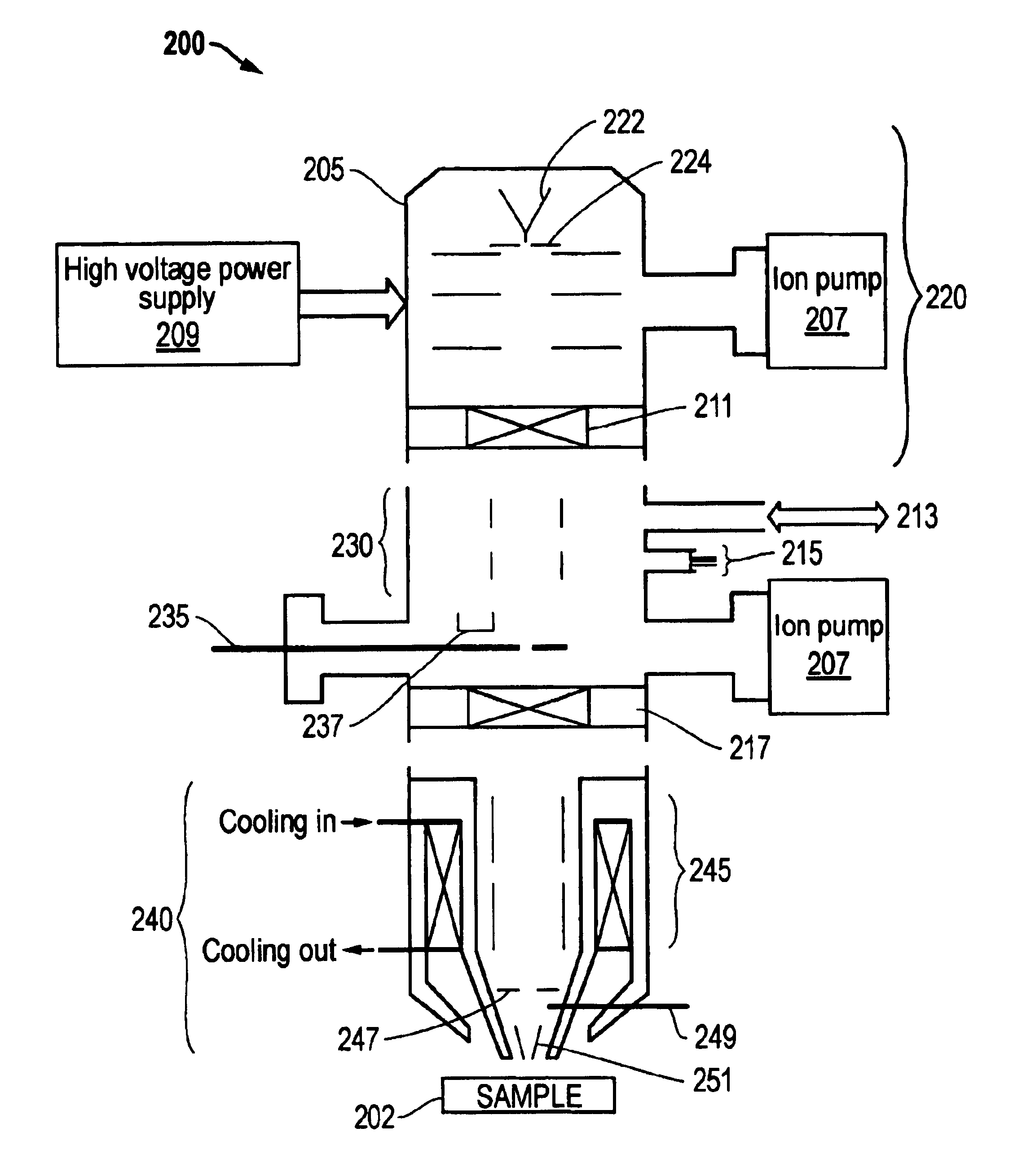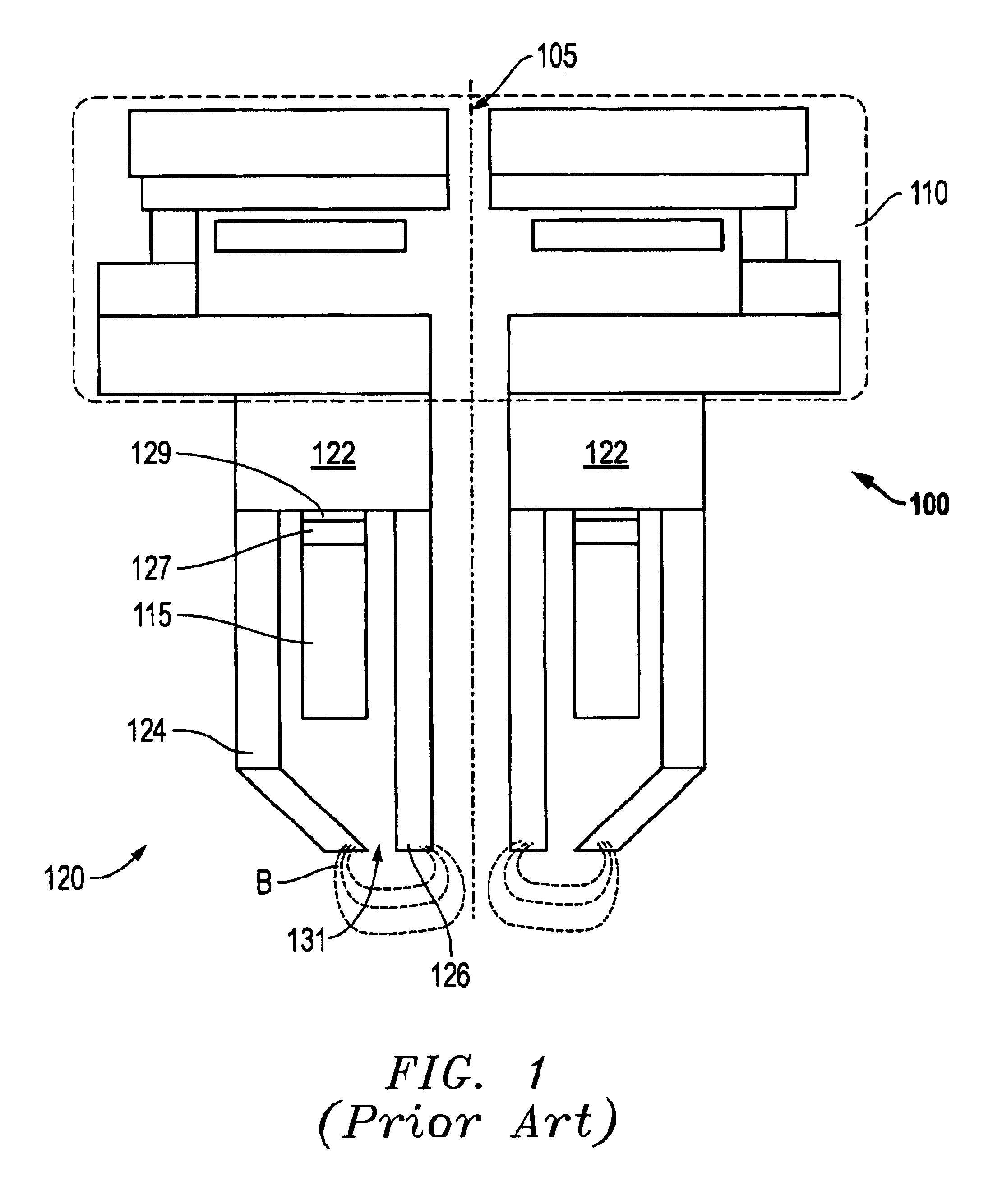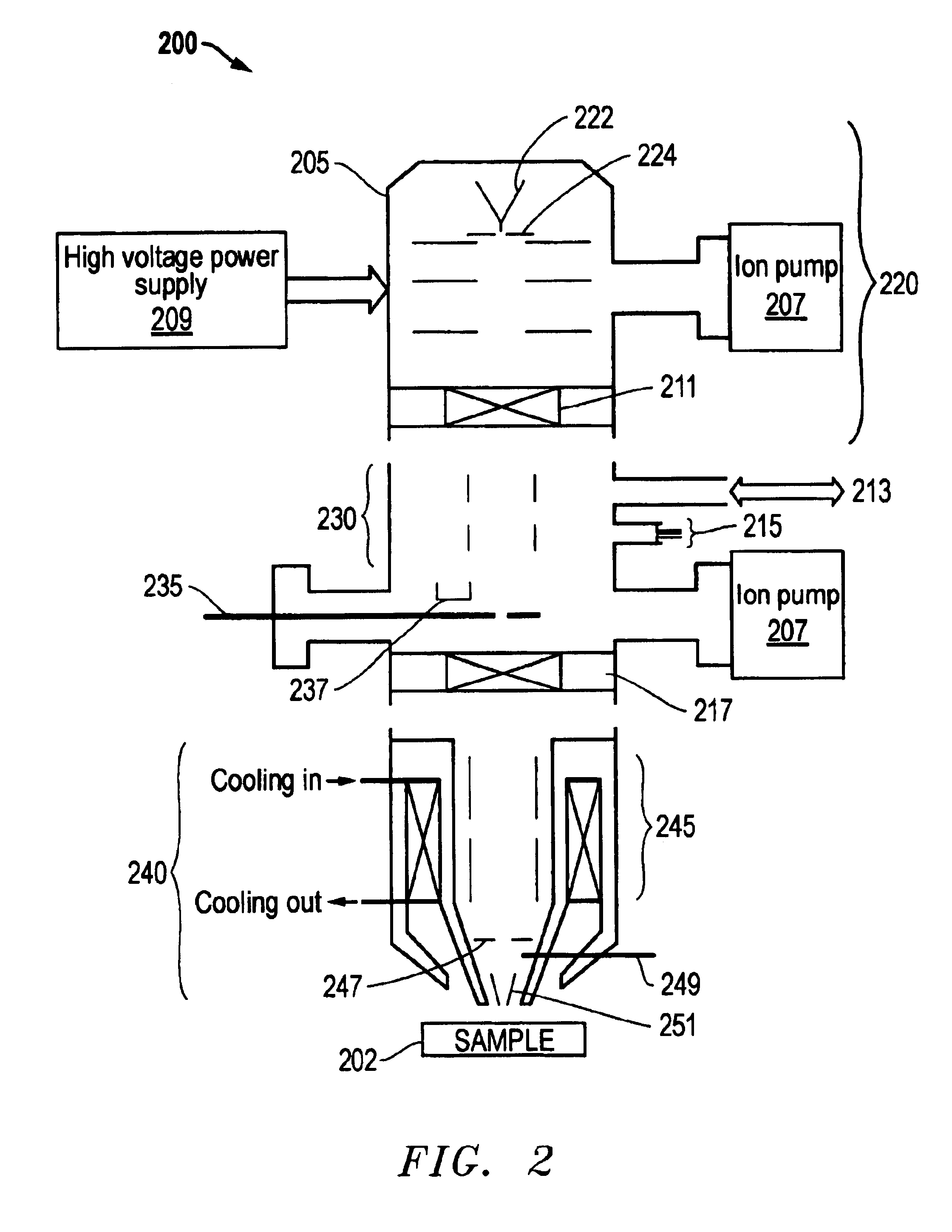Magnetic lens
a technology of magnets and lenses, applied in the field of magnets, can solve the problems of imposing a delay in the operation of the device, the pole assembly to contract, and the temperature to fall, and achieve the effect of eliminating unreasonable delays in the operation of the lens, constant temperature signature, and constant average heat power
- Summary
- Abstract
- Description
- Claims
- Application Information
AI Technical Summary
Benefits of technology
Problems solved by technology
Method used
Image
Examples
example
In an exemplary dual beam system (not shown), a multi-coil lens as described above has the following characteristics:
Total number of turns:1232Turns ratio's n1:n2:n18:6:8Ampere turns1140 AtMean diameter80 mmDynamic focus requirement (Δzfocus):≈25 μmzfocus≈2.3 mm
Moreover, the acceleration voltage of the electron beam in an SEM must be allowed to quickly changed (interruption less than one minute) over a range of operating voltages from 500V to 2 kV. For the same focus point, this results in a required change in magnetic field from 570 to 1140 amp-turns (a change of a factor of two), and hence a variation in dissipated power of a factor 4. These parameters were met by implementing the following measures.
Consistent with the lens of FIG. 4, a circular symmetric construction was employed. The objective coil was cooled with a water-cooling body having thermally conductive side covers, and it was insulated from the SEM housing. The constant power dissipation and constant power density tech...
PUM
 Login to View More
Login to View More Abstract
Description
Claims
Application Information
 Login to View More
Login to View More - R&D
- Intellectual Property
- Life Sciences
- Materials
- Tech Scout
- Unparalleled Data Quality
- Higher Quality Content
- 60% Fewer Hallucinations
Browse by: Latest US Patents, China's latest patents, Technical Efficacy Thesaurus, Application Domain, Technology Topic, Popular Technical Reports.
© 2025 PatSnap. All rights reserved.Legal|Privacy policy|Modern Slavery Act Transparency Statement|Sitemap|About US| Contact US: help@patsnap.com



